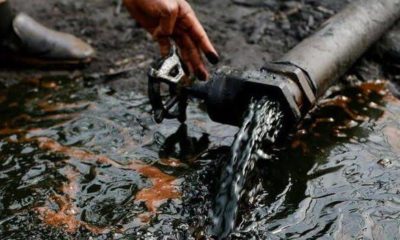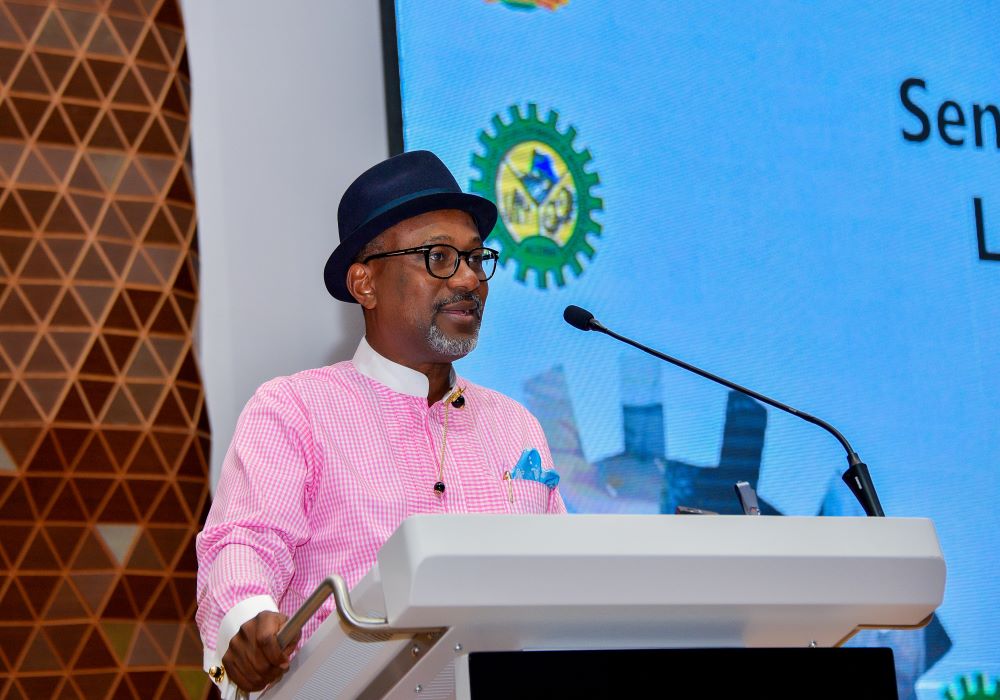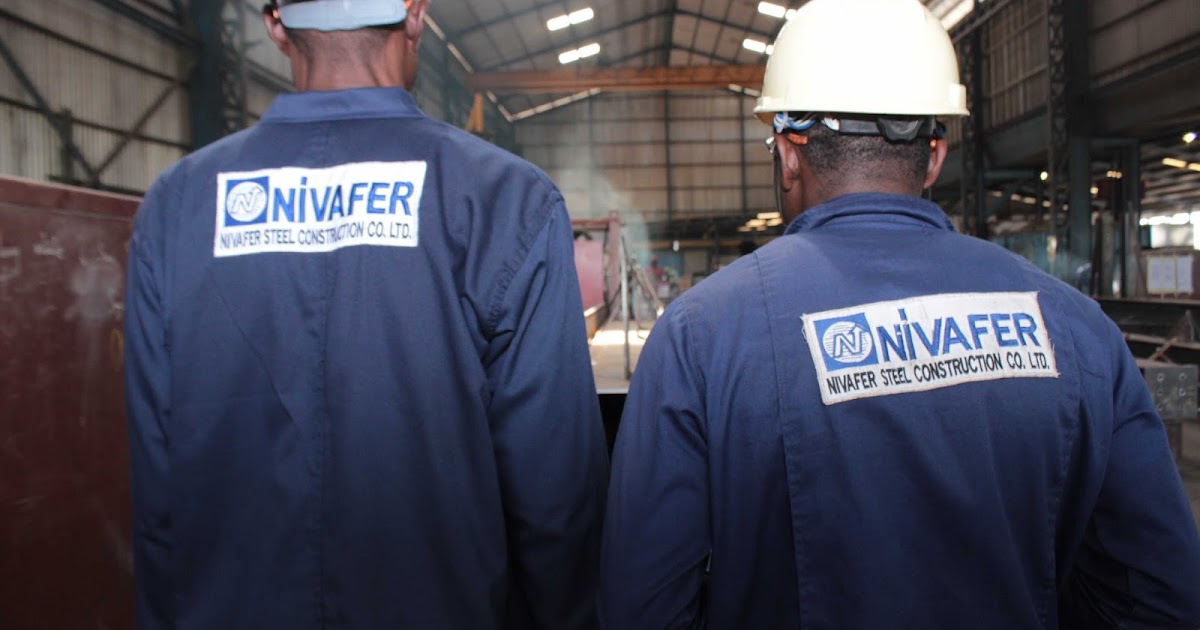Oil
Oil Spill: Shell Finally agrees to pay Bodo community £55 million

By Yemie ADEOYE
HOUSTON -AFTER a protracted controversy over two major oil spills in Bodo community, Rivers state, South-south Nigeria which is said to have destroyed tons of livelihoods in the area, the Shell Petroleum Development Company of Nigeria Limited (SPDC), has today announced a £55 million settlement agreement with the Bodo community in respect of the two highly regrettable operational spills in the area which occurred since 2008.
This is coming after several attempts at out of court settlement which has most been stalemated owing to un-agreeable figures both in spill quantity and proposed compensation.
The latest £55 million settlement provides for an individual payment to each claimant who accepts the settlement agreement in compensation for losses arising from the spills, amounting to up to £35 million in total. The remaining £20 million payment will be made for the benefit of the Bodo community generally.
“From the outset, we’ve accepted responsibility for the two deeply regrettable operational spills in Bodo. We’ve always wanted to compensate the community fairly and we are pleased to have reached agreement,” said Mutiu Sunmonu, Managing Director of SPDC. “We are fully committed to the clean-up process being overseen by a former Netherlands’ Ambassador to Nigeria. Despite delays caused by divisions within the community, we are pleased that clean-up work will soon begin now that a plan has been agreed with the community.
“However, unless real action is taken to end the scourge of oil theft and illegal refining, which remains the main cause of environmental pollution and is the real tragedy of the Niger Delta, areas that are cleaned up will simply become re-impacted through these illegal activities.
“SPDC has made efforts to raise awareness of the issue with the government of Nigeria, international bodies like the United Nations, the media, civil society and international non-governmental organisations (NGOs), and we will continue to play an active role in the search for solutions. We urge all those with influence, including Bodo community leaders and NGO groups, to support this effort.
The Bodo community in Rivers State had accused the SPDC of being responsible for the massive spill incident that involved about 500,000 barrels of crude oil that wreaked extensive damage to the environment.
After the SPDC failed to heed several appeals for payment of compensation to the affected oil-rich Niger Delta community, about 11,000 residents dragged the multinational oil company before a London court.
The multinational had repeatedly launched intensive campaigns against oil pipeline vandalism in Nigeria as it tends to portray a more serious danger to the Country’s mono-dependent economy than operational spills which according to it does not witness regular occurrence.
Oil
NNPC Targets 60% Methane Emission Reduction By 2031
The Nigerian National Petroleum Company Limited (NNPC) has unveiled a bold strategy to reduce methane emissions in the oil and gas sector by 60% by 2031, with an ultimate goal of achieving net-zero emissions by 2060.
This announcement reinforces Nigeria’s leadership role under the Global Methane Pledge initiative and its commitment to tackling climate change.
The Group Chief Executive Officer of NNPC, Mele Kyari, disclosed these plans during a meeting on Thursday with Robert Leahman, the U.S. State Department’s Global Methane Program Manager, and a delegation from Deloitte.
READ MORE: Atiku Gloats Over AUN’s Achievements Ahead Of 20th Anniversary
The discussions, held at the NNPC Towers in Abuja, focused on collaborative efforts to reduce methane emissions through innovative and sustainable practices.
“Reducing methane emissions is not just an environmental necessity but also a strategic imperative for Nigeria’s energy transition. We are leveraging partnerships to adopt global best practices and innovative solutions,” Kyari stated.
Key among these efforts is a pilot project in the Niger Delta, aimed at establishing emissions baselines, mitigating methane leaks, and promoting sustainable operations across Nigeria’s energy sector.
The project, a partnership between NNPC, Deloitte, and the U.S. Bureau of Energy Resources, will utilize data-driven methodologies to pinpoint and address methane hotspots.
Robert Leahman commended Nigeria’s proactive stance, describing it as a benchmark for other nations on the continent.
“Nigeria’s leadership under the Global Methane Pledge sets a standard for the continent. These initiatives will not only help reduce emissions but also drive sustainable development in the energy sector,” he said.
Kyari highlighted the broader benefits of addressing methane emissions, noting its significance for both environmental protection and economic efficiency.
“This collaboration is a game-changer. By addressing methane leaks, we’re reducing waste, saving costs, and protecting the environment. It’s a win-win for our economy and the planet,” he added.
Oil
FG Introduces New Incentives To Revitalize Nigeria’s Oil & Gas Industry
In a strategic move to revitalize Nigeria’s oil and gas sector, the Federal Government has unveiled two key fiscal incentives aimed at attracting investment and enhancing energy security.
The announcement was made by Mr. Wale Edun, the Minister of Finance and Coordinating Minister of the Economy on Wednesday.
The first initiative, the Value Added Tax (VAT) Modification Order 2024, introduces critical exemptions for essential energy products and infrastructure, including Diesel, Feed Gas, Liquefied Petroleum Gas (LPG), Compressed Natural Gas (CNG), Electric Vehicles, Liquefied Natural Gas (LNG) infrastructure, and Clean Cooking Equipment.
Read Also: Atiku Calls For Rotational Presidency Across Nigeria’s Geopolitical Zones
These exemptions are designed to reduce living costs for Nigerians, promote energy security, and accelerate the transition to cleaner energy alternatives.
The second initiative, the Notice of Tax Incentives for Deep Offshore Oil & Gas Production, offers new tax relief options for deep offshore exploration projects.
This measure aims to position Nigeria’s deep offshore basin as a premier destination for international oil and gas investments, boosting the country’s appeal to foreign investors.
These reforms are part of a broader set of policy initiatives, known as Policy Directives 40-42, endorsed by President Bola Ahmed Tinubu.
The directives reflect the administration’s commitment to fostering sustainable development in the energy sector and enhancing Nigeria’s competitive edge in the global oil and gas market.
Business
Tinubu set to approve ExxonMobil-Seplat oil deal, expands CNG bus initiative

By Yemie Adeoye
NIGERIA’s President Bola Tinubu has announced that the protracted ExxonMobil-Seplat upstream oil divestment will be formally approved by the Minister of petroleum within a matter of days, just as he announced his government’s intention to expand the Compress natural Gas, CNG buses initiative.
The President who stated this during his Independence day nationwide broadcast stated that the move is in line with his administration’s commitment to free enterprise, free entry and free exit in investments which is the hallmark of his administration investment policy.
“Fellow compatriots, our administration is committed to free enterprise, free entry, and free exit in investments while maintaining the sanctity and efficacy of our regulatory processes. This principle guides the divestment transactions in our upstream petroleum sector, where we are committed to changing the fortune positively. As such, the ExxonMobil Seplat divestment will receive ministerial approval in a matter of days, having been concluded by the regulator, NUPRC, in line with the Petroleum Industry Act, PIA. This was done in the same manner as other qualified divestments approved in the sector.”
The President also seized the opportunity to plead with Nigerians to be patient with his administration’s reform policies. “As your President, I assure you that we are committed to finding sustainable solutions to alleviate the suffering of our citizens. Once again, I plead for your patience as the reforms we are implementing show positive signs, and we are beginning to see light at the end of the tunnel”.
“Our energy transition programme is on course. We are expanding the adoption of the Presidential Initiative on Compressed Natural Gas for mass transit with private sector players. The Federal Government is ready to assist the thirty-six States and FCT in acquiring CNG buses for cheaper public transportation.
Fellow Nigerians, while we are working to stabilise the economy and secure the country, we also seek to foster national unity and build social harmony and cohesion. Our economy can only thrive when there is peace”. he enthused.

















